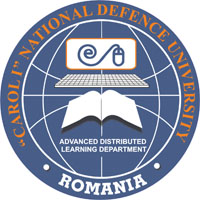COPYRIGHTS IN ROMANIA
COPYRIGHTS IN ROMANIA
Author(s): Marin DRĂMNESCU, Ion STAVRESubject(s): Education
Published by: Carol I National Defence University Publishing House
Keywords: copyright; interne; copy/paste; plagiarism; free information; purchased information
Summary/Abstract: The continuous development of the internet, the wide availability of online services, as well as the intuitive, facile, and almost instantaneous utilization of available data from the virtual environment have generated an incredible dissemination of information. These elements have also brought people closer, have cancelled borders and traditional barriers between states and have facilitated a novel manner of socialization. At the same time and in an equal facile manner, the internet has also generated specific problems, some of which are yet unresolved. A problem that requires an urgent solution is the serious infringement of copyright and ownership rights. The copy/paste phenomenon has been gaining ground and the ways to control it are not efficient. The main effects are the inhibition of creativity, superficial research and supporting plagiarism. On the other hand, the Internet has radically transformed the media and at this moment there is no single viable business model for the media exclusively on the Internet. Copyright becomes an issue that must be fundamentally solved in the new circumstances of the Internet. Thus, a balance must be reached between free and purchased information. This article aims to identify new solutions, more adequate and more efficient, through which the plagiarism phenomenon is reduced. A synthetic vision on the copy/paste phenomenon is showcased, vision which highlights the results and their impact over current research activities and on scholars' creativity. Thus, the necessity to promote and consolidate ethical dimensions towards ownership, by means of proper referencing of the research works that was appealed to (i.e. free or purchased information), is argued.
Journal: Conference proceedings of »eLearning and Software for Education« (eLSE)
- Issue Year: 11/2015
- Issue No: 03
- Page Range: 127-132
- Page Count: 6

